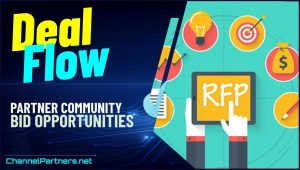
 The purpose of this Tender from CalMac Ferries is to seek proposals from a qualified vendor to assist CFL in developing a comprehensive data strategy.
The purpose of this Tender from CalMac Ferries is to seek proposals from a qualified vendor to assist CFL in developing a comprehensive data strategy.
CFL is on a journey towards a truly data driven culture, working to recognise data as one of its most important assets and put in place the systems, tools and skills to confidently access data, apply data science methods that will underpin the Business Strategy going forward and enhance employee experience.
Furthermore, CFL will itself up for future success through leveraging the power of AI and Machine Learning in order to truly elevate customer experience, generate incremental revenue and deliver enhanced value for money.
This strategy aims to transform the company’s data management practices, enhance decisionmaking capabilities, and drive operational efficiencies through effective use of data.
The key objectives are to:
- Establish robust data governance, quality, and management practices to ensure data is accurate, consistent, and accessible.
- Leverage data analytics and business intelligence tools to support strategic and operational decisions.
- Facilitate the move from descriptive analytics to predictive, and the application of data science techniques.
- Mine data for detailed insights and develop real time monitoring and tracking of performance and interactions to optimise operations, enhance customer experiences, automate processes, drive cost savings, and deliver additional revenue.
- Implement data security measures and ensure compliance with relevant regulations and standards and design these into solutions.
- Encourage innovative use of data to explore new business opportunities and improve service offerings.
- Explore the necessary technologies and tools required to support AI and advanced analytics initiatives.
Requirement
The scope of work for the successful Supplier includes, but is not limited to:
Current State Assessment
Conduct a comprehensive review of the existing data landscape, including data sources, systems, processes, and governance practices.
- Cataloguing all data sources, systems, integrations, and repositories currently in use.
- Documenting data-related processes, workflows, and interactions across departments.
- Assessing existing data governance practices, including data quality management, data leadership, data stewardship, and compliance with regulations.
- Evaluating the current technology infrastructure supporting data storage, processing, and analysis, including hardware, software, and network capabilities.
- Conducting interviews and workshops with key stakeholders to understand their data needs, challenges, and aspirations.
Future State Definition
Define the desired future state for data management, including the architecture, tools, and technologies needed to support CFL’s strategic goals.
- Establishing a clear vision and set of goals for the data strategy, ensuring alignment with the company’s broader business objectives.
- Designing a future data architecture that supports scalability, flexibility, and agile integration of external and internal datasets with existing and future systems.
- Identifying the technologies, tools, and platforms needed to support the future state, including data warehouses, analytics platforms, code libraries, BI tools and AI.
- Developing a comprehensive data governance framework to ensure data quality, consistency, security, and compliance.
- Documentation of data sources, pipelines, tables & integrations.
Gap Analysis and Recommendations
Identify gaps between the current and desired future state and provide detailed recommendations to bridge these gaps.
- Highlighting discrepancies in data management practices, datasets, technology, skills, and processes.
- Offering a set of prioritised recommendations to address identified gaps, considering impact, feasibility, and cost.
- Providing a detailed action plan for implementing the recommendations, including specific steps, timelines, and resource requirements.
Data Governance Framework Development
Develop a data governance framework to ensure data quality, consistency, and security.
- Creating policies for data ownership, stewardship, and lifecycle management.
- Defining standards for data quality, including accuracy, completeness, consistency, and timeliness.
- Defining processes for identifying and managing enterprise master data.
- Implementing measures to protect data privacy and ensure compliance with relevant regulations, such as GDPR.
- Defining roles and responsibilities for data governance, including data stewards, data owners, and governance committees.
Implementation Roadmap
Create a detailed roadmap for implementing the data strategy, including timelines, milestones, and resource requirements.
- Breaking down the implementation into manageable phases, each with clear objectives and deliverables.
- Establishing realistic timelines and milestones for each phase of the implementation.
- Identifying the resources (both internal and external) required for successful implementation, including personnel, budget, and technology.
- Developing a risk management plan to identify, assess, and mitigate potential risks during implementation.
Pilot Project
Identify and execute a pilot project to demonstrate the value of the data strategy and gain stakeholder buy-in.
- Identifying a high-priority use case that can deliver immediate value and showcase the benefits of the data strategy.
- Implementing the pilot project, including data collection, analysis, and reporting.
- Assessing the success of the pilot project based on predefined metrics and KPIs.
- Documenting lessons learned from the pilot project to refine the approach for broader implementation.
Change Management
Develop and execute a change management plan to ensure successful adoption of the data
strategy across the organisation.
- Engaging with stakeholders throughout the organisation to build awareness, understanding, and support for the data strategy.
- Providing training and development programs to build data literacy and fluency, and skills among employees.
- Implementing a communication plan to keep stakeholders informed about progress, milestones, and achievements.
- Establishing mechanisms to gather and incorporate feedback from stakeholders to continuously improve the implementation process.
Ongoing Support and Optimisation
Ensuring continuous improvement and optimisation of data management practices.
- Implementing tools and processes for ongoing monitoring and reporting of data management performance.
- Establishing a culture of continuous improvement, regularly reviewing and refining data management practices.
- Providing ongoing support services to address any issues, challenges, or opportunities that arise during and after implementation.
Expected Outcomes
The development and implementation of a comprehensive data strategy are expected to deliver the following outcomes:
- Enhanced Data Quality and Accessibility – Improved data quality and streamlined access to data for all stakeholders, including validation throughout the data lifecycle, improving user experience and empowering end users by reducing the time and effort required for data access and analysis.
- Informed Decision Making – Enhanced ability to make data-driven decisions at all levels of the organisation.
- Operational Efficiency – Increased efficiency & effectiveness of operations through data insights.
- Value Generation and CX improvements – Delivering easy to access validated datasets via agile project methodology will very quickly lead to application of data science methods to increase incremental revenue and improved customer experience.
- Enhanced Productivity – Allow end users to focus on mining the data for insight and trends and what the analysis is recommending.
- Enhanced Integration – Improved & streamlined integration for external data sources.
- Regulatory Compliance – Ensured compliance with data protection & privacy regulations.
- Innovative Capabilities – Increased capacity for innovation through advanced analytics and data-driven insights.
Vendor Requirements
To achieve these goals, CFL seeks vendors with:
- Demonstrable experience in developing and implementing data strategies for similar organisations.
- Strong technical expertise in data architecture, analytics, business intelligence, and data governance.
- Proven ability to manage complex projects, including change management and stakeholder engagement.
- Ability to work collaboratively with CFL’s teams and stakeholders to ensure successful strategy development and implementation.
Contract Deliverables
- Detailed assessment reports (as-is state, readiness, and maturity).
- Defined future state architecture and capabilities.
- Comprehensive strategic roadmap with milestones.
- Governance framework and target operating model design.
- Strategy to facilitate the adoption of new data practices, including stakeholder engagement, communication plans, and training programs.
- Framework for ongoing assessment and improvement of data management practices, ensuring sustained value and adaptation to evolving business needs.



